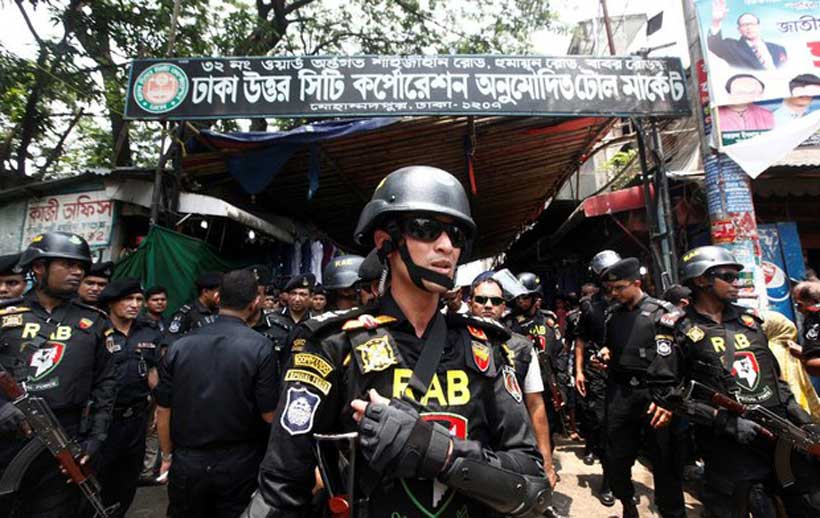The Rapid Action Battalion (Rab), a special force created nearly 20 years ago to fight crime and terrorism in Bangladesh, has faced serious criticism over the years for its alleged involvement in human rights abuses.
Rights groups and critics have accused Rab of becoming a "death squad" that operates with little accountability.
The force is often linked to extrajudicial killings, forced disappearances, and the torture of political opponents and critics of the government.
Rab`s reputation was further damaged by high-profile incidents such as the seven murders in Narayanganj and the killing of local politician Akramul Haque in a supposed gunfight.
These cases contributed to Rab’s controversial image and led to U.S. sanctions against its top officials in 2021.
For years, rights organizations both in Bangladesh and internationally have called for Rab`s reform, and some have even called for its abolition.
In response to these calls and a changing political climate, Rab has announced plans to reform its operations.
This includes changing its name, logo, and uniforms, as well as creating a new law to regulate how the force works.
Currently, Rab operates under the police ordinance, without a specific law to govern its actions.
AKM Shahidur Rahman, Rab’s director general, confirmed that a draft law is already in the works.
Despite Rab’s plans for reform, some human rights activists argue that the force should be disbanded entirely.
Prominent lawyer ZI Khan Panna and rights activist Nur Khan Liton have both said that Rab is not needed, and that other law enforcement agencies in Bangladesh are capable of maintaining order.
Liton, who is also part of the Enforced Disappearance Enquiry Commission, pointed out that Rab has been linked to numerous cases of forced disappearance, with the commission receiving 172 complaints of such abuses involving Rab alone.
The Enforced Disappearance Enquiry Commission, which was set up by the interim government in 2024 to investigate forced disappearances, has uncovered disturbing evidence of Rab’s treatment of detainees.
In one case, a diary was found in a small, dark cell used by Rab to hold suspects.
The conditions in the cell were so poor that detainees could only tell the time of day based on when they were given a piece of bread for breakfast.
This discovery has raised serious concerns about the force`s treatment of those in its custody.
Rab’s activities have also raised questions about the use of "crossfire" killings, a term commonly used to describe extrajudicial executions by law enforcement.
According to the rights group Ain o Salish Kendra, Rab was involved in at least 467 such incidents between 2015 and 2023.
However, Rab’s officials defend their actions, citing their efforts to combat organized crime and ensure security.
The force was created in 2004, during the government of the Bangladesh Nationalist Party (BNP), with the goal of tackling crime and militancy.
Despite the controversies, some experts argue that Rab has contributed to law and order in the country.
Tawohidul Haque, a professor at Dhaka University, said that Rab’s role in maintaining peace should be acknowledged, but also called for thorough investigations into any wrongdoing.
Rab is now working on a new law that will set clear rules for how the force should operate, ensuring that its actions align with human rights standards.
The law will also include provisions for better oversight, accountability, and discipline within the force.
In response to international criticism, Rab has also been working to improve the human rights training of its members.
Rab officials claim they have taken disciplinary actions against over 4,000 of their members for involvement in criminal activities, including the Narayanganj murders.
Despite the criticisms, Rab points to its record of arrests as evidence of its ongoing role in crime fighting.
So far this year, Rab has arrested over 1,400 people for murder and rape, along with hundreds more for robbery, kidnapping, and human trafficking.
This report is based on an original article published by The Daily Star.















-20260221022942.jpg)
-20260221022827.webp)
















